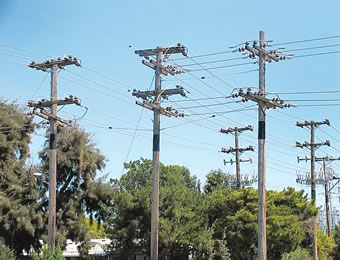It explained that most of the newly added capacities have been constrained from reaching electricity consumers.
Speaking with Nigerian Tribune in Abuja, the Technical Assistant, Media, to the umbrella body of the GenCos, Association of Power Generation Companies (APGC), Ogechi Okorondu said despite the GenCos efforts to increase their available capacity, the System Operators (SO) has the grid right to instruct any GenCos to reduce or cut down on its nominated capacity.
According to her, the grid code compels stakeholders including the GenCos to comply with any instruction from the SO to guide against partial or total system collapse.
However, she explained that in every global electricity markets, compelling generating station to reduce its generation in order to maintain the power grid attracts financial costs as contained in power purchase agreements (PPAs).
She added that unfortunately, GenCos have not been able to recover costs attached to deemed capacity,
She said; “When there are restrictions on the grid either due to load rejection on the part of the DisCos or congestions on the transmission network (line cuts, transformer faults, etc.) to evacuate available capacity, the SO instructs the GenCo to ramp down on its nominated capacity and the GenCo must comply.
“It is imperative to note that for a GenCo to nominate any capacity, it means effective commitments have been made as per gas for thermal plants and other equivalent necessary overhead costs which applies to both thermal and hydro plants.”
She added that: “Costs associated with deemed capacity are a legitimate cost that must be recovered. It is not different in the Nigeria electricity market which clearly says in the Transitional Electricity Market (TEM) Order No. NERC/14/0008, Section 16B paragraph 1 & 2 OF 2014 that a generator will be paid for the generation capacity utilized to deliver electrical energy, plus deemed capacity; where ‘’ deemed capacity’’ is capacity that would have been delivered but for the SYSTEM OPERATOR’s instruction to the said generator to derate or reduce its capacity to achieve grid balance and stability.
“Payments for deemed capacity over this period has run into billions of naira that would have been used in maintaining generating plants and paying for already purchased/contracted gas and services.”
Okorondu further pointed out that compelling a generator to ramp up and down at the unscheduled time affects it equivalent operating hours.
She said this process stresses the internal parts of the machine thus reducing the plants’ lifespan.
To this end, she urged relevant government agencies to facilitate the payment of outstanding invoices, stressing the need for Transmission Company of Nigeria (TCN) to improve the reliability of the power Grid System.
Also, she called for maintenance of grid-acceptable frequency limits of between 49.5Hz and 50.5Hz.
“In other words, our position is that the total outstanding invoice on deemed capacity must be added to market revenue gap for payment.
“Generating plants can no longer sustain themselves as the percentage of their revenue received does not cover their operating costs,” she added.
WATCH TOP VIDEOS FROM NIGERIAN TRIBUNE TV
- Let’s Talk About SELF-AWARENESS
- Is Your Confidence Mistaken for Pride? Let’s talk about it
- Is Etiquette About Perfection…Or Just Not Being Rude?
- Top Psychologist Reveal 3 Signs You’re Struggling With Imposter Syndrome
- Do You Pick Up Work-Related Calls at Midnight or Never? Let’s Talk About Boundaries







